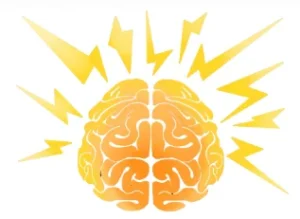Epilepsy is a neurological condition that affects the brain’s electrical activity, causing repeated seizures.

Imagine your brain as a city with perfectly synchronized traffic lights controlling the flow of cars—these lights are like the electrical signals that make your thoughts and body function. With epilepsy, some of these lights malfunction, leading to a sudden surge or halt in electrical signals, like a “traffic jam.” This causes seizures, which can affect your awareness, provoke uncontrollable movements, or lead to unusual behaviors or falls.
Seizures vary greatly in type and intensity. Some are mild, such as brief moments of confusion or small muscle twitches, while others are more severe, involving convulsions. The symptoms of epilepsy differ from person to person. Here are some common signs of epilepsy:
- Sudden confusion
- Staring spells
- Uncontrollable movements or stiffness of the arms and legs
- Psychological symptoms like recurring hallucinations, feelings of déjà vu, or sudden unexplained fear
- Loss of consciousness in some cases
These symptoms might be mild or severe and are determined by the location in the brain of the sudden electrical burst. Seizures can last from a few seconds to several minutes and don’t always involve visible convulsions; some may appear as brief periods of disorientation or staring. A person is diagnosed with epilepsy if they experience sudden seizures that happen repeatedly.

During pregnancy, hormonal and physiological changes can affect the brain’s electrical balance, sometimes increasing the frequency of seizures. Lack of sleep, stress, and changes in medication levels can also trigger more seizures, especially if you had frequent seizures before pregnancy.
Epilepsy can affect anyone, at any age. Rarely, a woman can experience her first seizure during pregnancy. This occurs in less than 1 out of 100 pregnancies and is caused by the changes in your body that can trigger symptoms that were previously absent or unnoticed.
If you notice any unusual episodes, such as unexplained confusion, memory lapses, or involuntary movements, it’s important to seek medical advice promptly.